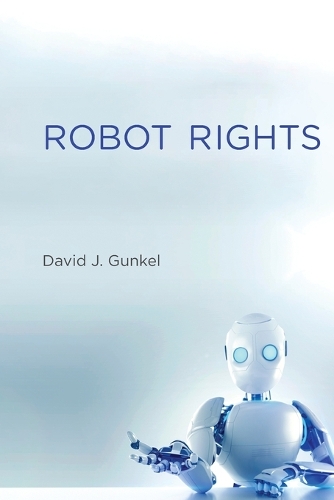
Robot Rights
(Paperback)
Available Formats
Publishing Details
Robot Rights
By (Author) David J. Gunkel
MIT Press Ltd
MIT Press
19th March 2024
United States
Classifications
Professional and Scholarly
Non Fiction
Robotics
179
Physical Properties
Paperback
256
Width 152mm, Height 229mm
369g
Description
We are in the midst of a robot invasion, as devices of different configurations and capabilities slowly but surely come to take up increasingly important positions in everyday social reality-self-driving vehicles, recommendation algorithms, machine learning decision making systems, and social robots of various forms and functions. Although considerable attention has already been devoted to the subject of robots and responsibility, the question concerning the social status of these artifacts has been largely overlooked. In this book, David Gunkel offers a provocative attempt to think about what has been previously regarded as unthinkable- whether and to what extent robots and other technological artifacts of our own making can and should have any claim to moral and legal standing. In his analysis, Gunkel invokes the philosophical distinction (developed by David Hume) between "is" and "ought" in order to evaluate and analyze the different arguments regarding the question of robot rights. In the course of his examination, Gunkel finds that none of the existing positions or proposals hold up under scrutiny. In response to this, he then offers an innovative alternative proposal that effectively flips the script on the is/ought problem by introducing another, altogether different way to conceptualize the social situation of robots and the opportunities and challenges they present to existing moral and legal systems. A provocative attempt to think about what was previously considered unthinkable- a serious philosophical case for the rights of robots. We are in the midst of a robot invasion, as devices of different configurations and capabilities slowly but surely come to take up increasingly important positions in everyday social reality-self-driving vehicles, recommendation algorithms, machine learning decision making systems, and social robots of various forms and functions. Although considerable attention has already been devoted to the subject of robots and responsibility, the question concerning the social status of these artifacts has been largely overlooked. In this book, David Gunkel offers a provocative attempt to think about what has been previously regarded as unthinkable- whether and to what extent robots and other technological artifacts of our own making can and should have any claim to moral and legal standing. In his analysis, Gunkel invokes the philosophical distinction (developed by David Hume) between "is" and "ought" in order to evaluate and analyze the different arguments regarding the question of robot rights. In the course of his examination, Gunkel finds that none of the existing positions or proposals hold up under scrutiny. In response to this, he then offers an innovative alternative proposal that effectively flips the script on the is/ought problem by introducing another, altogether different way to conceptualize the social situation of robots and the opportunities and challenges they present to existing moral and legal systems.
Reviews
"Robot Rights is a compelling read. It dives deeply into philosophy from the very start, but it's accessible and well structured, and useful and informative for anyone interested in the social impact of emerging technologies."
--Times Higher Education
"[A] brilliantly, disorienting book."
--Daily Telegraph
"Robot Rights is a crucial innovation in the way we think about our proper place in the world and relationships with entities of our own making."
--LSE Review of Books
"Gunkel elegantly deals with how and whether we can understand human rights so as to apply them to nonhuman entities, particularly automata. [ . . . ] [A] keen investigation into whether automata could have rights much like humans."
--Human Rights Watch
Author Bio
David J. Gunkel is Presidential Research, Scholarship, and Artistry Professor in the Department of Communication at Northern Illinois University and Professor of Philosophy at Lazarski University in Warsaw, Poland. He is the author of Robot Rights, Of Remixology- Ethics and Aesthetics after Remix, and The Machine Question- Critical Perspectives on AI, Robots, and Ethics (all MIT Press).
